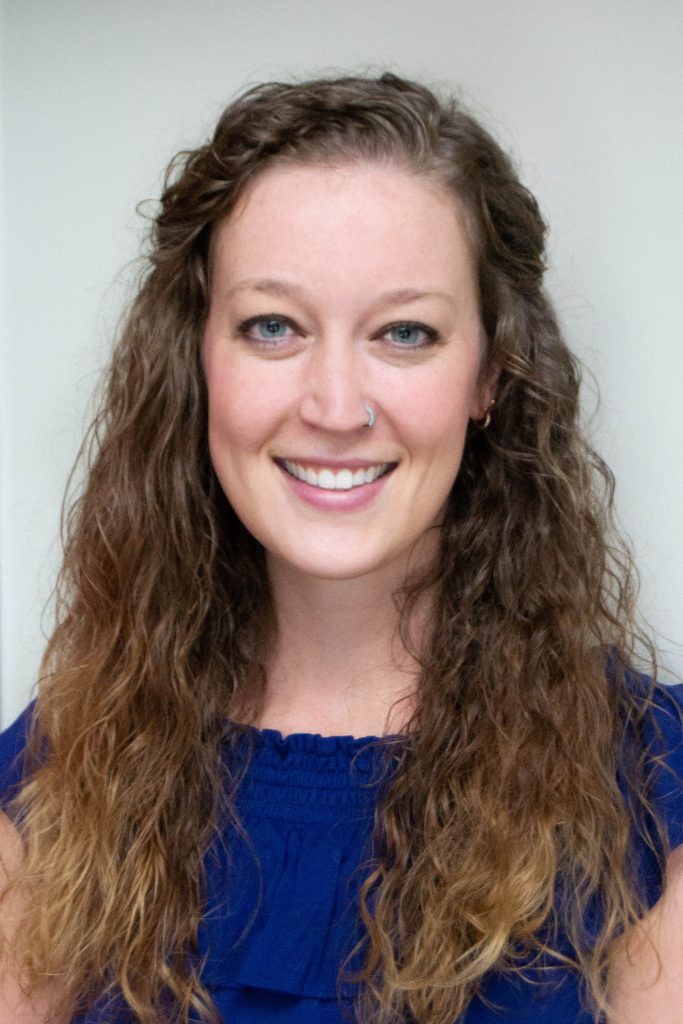
We interviewed PhD student Brynn Roemen about her interests in the field of special education and her experiences in the Department of Educational Psychology.
What are your research interests?
I am particularly interested in language deprivation in deaf and hard-of-hearing preschool children. I would like to investigate whether parent-teacher communication throughout early childhood education using a digital portfolio platform called Seesaw can help mitigate the lifelong effects of language deprivation.
How did your path lead to the Department of Educational Psychology and your particular major?
I worked as a preschool teacher at the Jean Massieu School of the Deaf in Salt Lake City. I discovered I really enjoyed communicating with my student’s parents on a daily basis through Seesaw. I was able to keep parents up to date on activities, literacy, and vocabulary being learned day-to-day in my classroom.
I discovered that some parents were looking through the app with their child after school to discuss what had occurred in their day. This type of dialogue does not always occur between parents of a deaf child because the parents may still be learning American Sign Language (ASL). The parents do not have the vocabulary, and the child does not have the language. This app created opportunities for dialogue between the parents and children as well as dialogue between parents and the teacher (me). It also helped me reach parents who had previously been less involved in their child’s education. Seesaw opened the conversations about what was being done in the classroom and could be modified for the home to continue to build students’ language in both settings.
What surprised you along the way?
Leaving my preschool teaching position was a very difficult decision knowing I would be working on the opposite end of the spectrum with adults as an instructor in the University’s Deaf education teacher training program. I was delightfully surprised at how much I love teaching at the college level and working with college students.
What is something you’ve most enjoyed about your experience?
I have enjoyed the different opportunities that have come my way during my short time in the program both in the university and the community. I am involved different research projects, presentations and collaborative work groups where I have met very dedicated individuals to the field.
What is most exciting about your work?
What I find to be most exciting is the limited amount of research that is available in the field of Deaf education. I can research areas that have never been investigated before! This allows for a lot of creativity and room for my interests to grow and expand to new areas.
How would you describe the student experience and what does that mean to you?
I would describe to be my student experience to be unique and highly tailored to my specific interests. I am able to be surrounded by diverse groups of people daily and find commonalities between their work and mine. I believe this to be an important part of learning how to collaborate with others and work toward a common goal.
What has been most challenging?
Ironically, the most challenging part is the same as what I find to be most exciting. The limited amount of research in the field of Deaf education can make it difficult to find quality studies that are in my area of interest. Often, I have to look to research on the hearing populations to help guide me.
How have your professors helped you along the way?
The program has a wonderfully insightful and collaborative faculty. Although the special education program has a very diverse research interests, they have all taken the time to listen and understand how Deaf education fits into special education and how it does not. They have been very receptive to my ideas and have provided wonderful advice on how I can pursue these interests.
What would you like prospective students to know?
University of Minnesota’s special education PhD program not only helps us build skills and become quality researchers, but there are so many opportunities outside of the program to be involved in the community, network, and discover the other potential career paths in your field.
How has your cohort helped you along the way?
They all come to the table with unique experiences and perspectives to share.
What are you looking forward to with graduation?
I am looking forward to seeing the career possibilities that are available to me. Also, having a full salary again and paying off my student loans will be a bonus of graduating!
How do you plan to use what you are learning/your degree?
I would love to find a position that allows me to be a leader in early childhood settings and working with families while maintaining my connections with higher education and continuing to train future educators.



